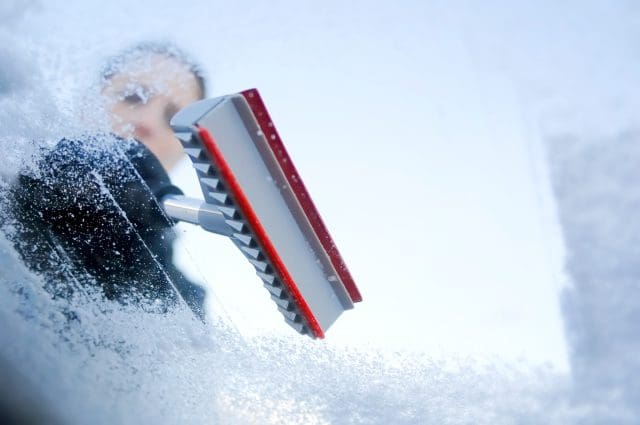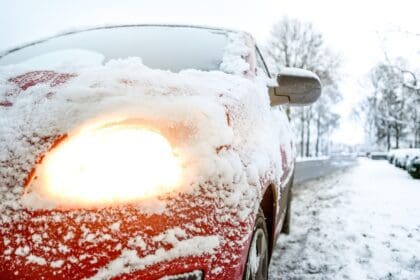It goes without saying that, as a taxi driver, your vehicle is your living. So, as winter starts to bite, here at Patons we thought we’d give you some advice to make sure you’re prepared for the colder days and darker nights of winter.
Many cars struggle in cold, frosty conditions, and breakdown callouts almost double during the winter months. With the harsh weather also making roads more dangerous to drive on, it’s really important to give your car some extra TLC. A bit of regular maintenance and upkeep will help you stay on the road, stay safe and keep earning.
Here are our top tips to prepare for the winter season:
- Check your car battery: Cold and damp weather can put a strain on your car’s battery, making it harder for your engine to turn over and having a negative impact on the power a battery can deliver. If you haven’t changed your car battery recently, then it could be tired, and the additional power drain of heaters and other devices could see it on its last legs. Invest in either a home battery tester or see a specialist where they will fit a new battery for you if needed.
- Check antifreeze: Antifreeze stops the water in the engine’s cooling system from freezing. To test its effectiveness, you can buy a tester for about £5. Simply lower the tube into the coolant, squeeze the rubber bulb on the end to suck some antifreeze inside the tester and then read the freezing point of the antifreeze using the scale inside the tester. Replace the antifreeze in the car’s system and replace the cap.
- Check screen wash: Frequently wet winter weather draws all the dirt and road salt from the road surface, meaning you end up using your windscreen wipers a lot. Even if your wipers are in good shape, they can still smear grime across the windscreen if your screen wash bottle is empty. To prevent this, keep your screen wash topped up with ready mixed or concentrated screen wash, which you’ll need to mix with water.
- Check exterior lights: With the days shorter and the weather worse during the winter months, maintenance of your exterior lights is important. Check and clean your lights regularly. The salt and dirt can quickly build-up, reducing the effectiveness of the lights and reducing your visibility to other road users. It’s best to keep your lights on in all sorts of weather, as it helps you to be seen. Carry extra bulbs in case of a failure, and learn how to replace them, because you can guarantee that when one blows it’ll be in the dark, in freezing cold and wet weather.
- Winter tyres: Winter tyres offer exceptional grip when the temperature drops below seven degrees and perform better than summer tyres when it’s wet. They’re not cheap, but are worth the investment for the additional safety they bring. Even if you don’t want winter tyres, checking the tread depth of your existing tyres is important. The legal limit is 1.6mm, but having more than this can dramatically improve steering and braking. Also check your tyre pressures regularly, as these can change with the drop in air temperature during winter.
If you’ve not got the time to prepare your car for winter, then you can ask an expert to do it for you. Many main dealers and high street car spares shops do this for a small fee or even for free, especially if your car is due a service around the same time.
Winter car equipment
Carrying an emergency kit with you at all times through the winter is a really good idea, and if you ever find yourself stranded you’ll definitely be glad you did. We recommend:
- A mobile phone and charger
- A hazard warning triangle
- Hi-visibility vest
- A first aid kit
- De-icer and a scraper
- A shovel
- A tow rope
- Wellies
- A torch
- Warm clothes
- Food and drink
- A decent set of car mats (these will not only protect the inside of your car, but can be wedged under the wheels to get you moving if you get stuck)




